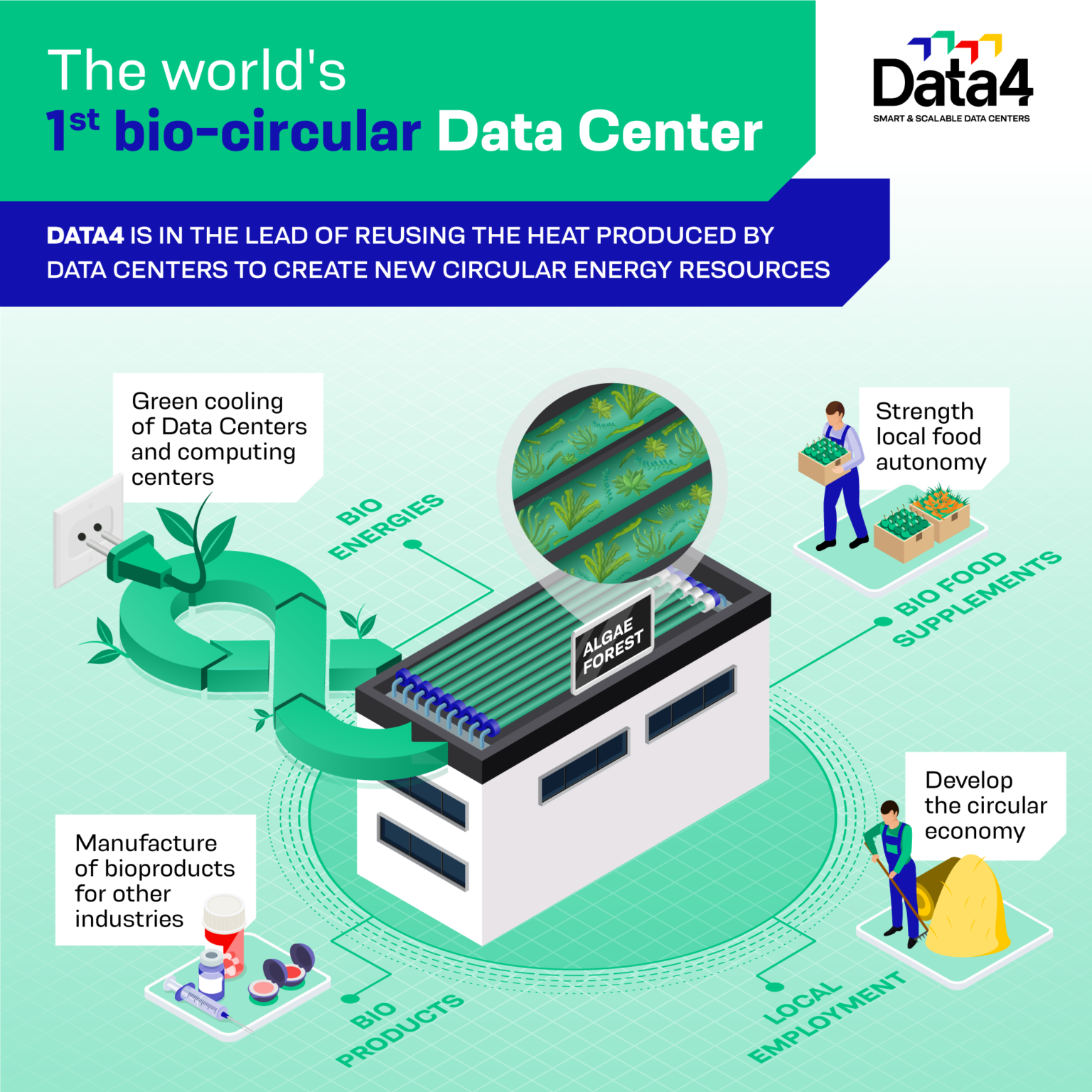This next-generation data center project is turning waste heat into algae-based biofuel — could this be the future of green data storage?
Data4, the French company behind the innovative project, aims to create the world’s first “bio-circular data center”


A French data center company has come up with a novel way of using some of the excess heat it generates, using it to grow algae which can then be used to power other data centers and create bioproducts.
The heat generated from the racks of servers in a data center is a growing problem for the industry, with operators forced to use expensive cooling to keep hardware operating at the optimum temperature, which is both costly and bad for the planet.
As a result, data center companies are trying to come up with better ways of using that heat.
Paris-based data center group Data4 said it is working with the University of Paris-Saclay on a first-of-its-kind experiment to reuse some of the heat produced by its data center in the Essonne region, south of Paris.
Data4 said the project will be run by a team with skills in biomass, AI, physics, chemistry, and economics along with academics, the Blue Planet Ecosystems startup, and Data4 teams at the group’s Marcoussis site.
“Faced with the exponential growth of digital technology and the amount of data stored in data centers (+35% / year worldwide), the environmental efforts of players in the sector must be equal to the challenge,” Data4 said in a blog post.
“This new R&D project is a response to the strategic challenge of reusing the heat produced by data centers.”
Sign up today and you will receive a free copy of our Future Focus 2025 report - the leading guidance on AI, cybersecurity and other IT challenges as per 700+ senior executives
To prevent this heat from being lost, a number of reuse options are currently being explored. The option that many data centers have chosen is to use the excess heat to warm nearby homes. However, according to Data4 this option “only exploits 20% of the heat produced”.
The firm said it plans to reuse waste heat to reproduce natural photosynthesis mechanisms using captured CO2 to grow algae. This will then be recycled as biomass to develop “new sources of circular energy" and reused to manufacture bioproducts for other industries”. Long-term, these excess bioproducts could also be used to provide materials for the cosmetics or agriculture industries, for example.

“This energy will then be used by Data4 data centers but also by the local community,” the company said. “We also want to solve the waste heat issue and increase energy efficiency by creating a new sustainable source of energy.”
The project is estimated to cost around €5 million ($5.4 million), and Data4 has a partnership with the university to run for four years. The company said it hopes to have a first prototype to show in the next 24 months.
“Since this project has a strong potential of duplication, we hope the Data4 campus in the Paris region will live for many years and inspire other countries and regions,” the company told ITPro.
In a feasibility study carried out with the startup Blue Planet Ecosystems, Data4 said this method of carbon capture can be 20 times more efficient than that of a tree.
RELATED WHITEPAPER

“This augmented biomass project meets two of the major challenges of our time: food security and the energy transition. It requires close collaboration between all the players in the Essonne region, including Data4, to develop a genuine industrial ecology project aimed at pooling resources and reducing consumption in the region,” said Linda Lescuyer, Data4 innovation manager.
Demand for data center space continues to grow, but so does pressure on data center providers to make sure that they are as green as possible. That involves using renewable energy to power the sites in many cases, and making sure that the excess heat is used rather than wasted.
For example, a proposed data center in East London could use its waste heat to warm as many at 13,000 local homes. Other data center facilities have promised to improve biodiversity through the use of green roofs and other features.
Steve Ranger is an award-winning reporter and editor who writes about technology and business. Previously he was the editorial director at ZDNET and the editor of silicon.com.


